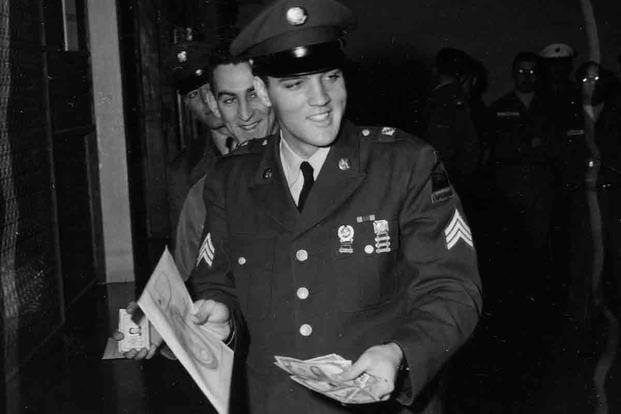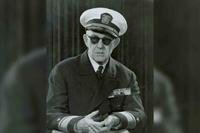When Elvis Presley was drafted by the U.S. Army in 1957, he declined to join the Special Services and spend his enlistment entertaining troops. He wanted to enter the Army as anyone else would and didn't want to be treated any differently than any other soldier.
The media worried his service would ruin his career. His manager, Tom Parker, and producers at RCA knew otherwise.
Elvis had a trove of unreleased material before he entered Army service in September 1958, and he even recorded five more songs after completing basic training. He would release 10 Top 40 hit songs while serving. It wasn't the Army that ruined his music career; it was his movies.

For seven years, he made bad movie after bad movie, with forgettable songs to accompany them. By the end of his Hollywood run, even his most diehard fans thought his career was a joke. Then, in 1968, he returned to the stage for a live performance, aired on NBC, that reminded everyone why Elvis Presley became famous in the first place.
A new documentary from Paramount+, "Reinventing Elvis: The '68 Comeback," tells the story of his seemingly overnight resuscitation.
After leaving the Army in 1960, Elvis recorded the single "Stuck on You," along with three studio albums and the movie "G.I. Blues" between 1960 and 1961. In March 1961, he gave a benefit concert to raise money for the Pearl Harbor Memorial, which would be his last onstage performance until 1968.
The seven years that followed the Pearl Harbor show saw Elvis make a series of increasingly bad, formulaic musical comedy movies. Many featured equally formulaic soundtrack albums. His worst movies include "Stay Away, Joe," where Elvis plays a Navajo man who gets drunk and chases underage girls; "Double Trouble," where he abandons an underage girl in Europe; and "Roustabout," in which Elvis uses karate to beat up an audience.
As terrible as the films were, they were still (mostly) commercial hits, which was why Elvis kept making them. His music also slowly declined over the years. In the first half of the 1960s, he was still one of the top-rated artists. He only had one Top 10 hit between 1965 and 1968, from his award-winning gospel album, unrelated to his films.
Fifteen of his films had Elvis Presley soundtrack albums. and five featured EPs. They were so bad, even Elvis didn't like them. He was especially indignant about having to sing "Old MacDonald Had a Farm" for the 1967 film, "Double Trouble." Unlike his films, however, the soundtracks weren't as commercially successful.
His albums began peaking in the 40s on the Billboard 100. After the soundtrack for his 1968 movie "Speedway" topped out at No. 82, everyone knew Elvis' music career was in trouble. He would release one more terrible musical comedy before NBC aired "Singer Presents ... Elvis" in December 1968. It was a huge stage show filmed in Burbank, California, the previous June.
Elvis' performance in what would come to be known as the "'68 Comeback Special" was so electric that it captured almost half of the total viewing audience the night it aired, rebooted his musical stylings and totally revived his musical career. All those bad movies and songs were forgotten.
Get the full story of the return of the King by watching "Reinventing Elvis: The '68 Comeback" on Paramount+, starting Aug. 15, 2023.
-- Blake Stilwell can be reached at blake.stilwell@military.com. He can also be found on Facebook, Twitter, or on LinkedIn.
Keep Up With the Best in Military Entertainment
Whether you're looking for news and entertainment, thinking of joining the military or keeping up with military life and benefits, Military.com has you covered. Subscribe to the Military.com newsletter to have military news, updates and resources delivered straight to your inbox.

















